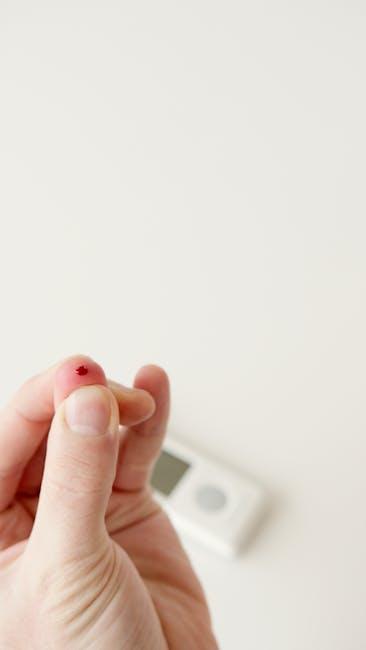
Monitoring morning blood sugar levels is a crucial aspect of managing diabetes and overall health. For those with diabetes, keeping blood sugar levels in check is essential for preventing complications and maintaining a good quality of life. In this article, we will delve into the importance of monitoring morning blood sugar levels and how it can impact your health.
Why is it important to monitor morning blood sugar levels?
1. Early detection of high and low blood sugar levels: Monitoring your morning blood sugar levels can help you detect any spikes or drops in your blood sugar levels early on. This can help you take necessary actions to prevent complications such as hypoglycemia (low blood sugar) or hyperglycemia (high blood sugar).
2. Better management of diabetes: By monitoring your blood sugar levels regularly, you can make informed decisions about your diet, exercise, and medication regimen. This can help you maintain stable blood sugar levels throughout the day and prevent sudden fluctuations that can lead to complications.
3. Prevention of complications: High blood sugar levels can damage blood vessels and organs over time, leading to complications such as heart disease, kidney disease, and nerve damage. By monitoring your morning blood sugar levels, you can prevent these complications by keeping your blood sugar levels within a healthy range.
4. Evaluation of treatment effectiveness: Monitoring your morning blood sugar levels can help you evaluate the effectiveness of your diabetes treatment plan. If your blood sugar levels are consistently high despite following your treatment plan, you may need to adjust your medication or lifestyle habits to achieve better control.
5. Improvement of overall health: Keeping your blood sugar levels in check can have a positive impact on your overall health. Stable blood sugar levels can help improve your energy levels, mood, and cognitive function, and reduce your risk of developing other health conditions such as obesity and heart disease.
How to monitor morning blood sugar levels?
1. Use a blood glucose meter: A blood glucose meter is a small device that measures the amount of sugar in your blood. To monitor your morning blood sugar levels, simply prick your finger with a lancet to draw a drop of blood, and then place it on the test strip of the glucose meter. The meter will give you a reading of your blood sugar level in milligrams per deciliter (mg/dL) or millimoles per liter (mmol/L).
2. Keep a log: It is important to keep a log of your morning blood sugar levels to track patterns and trends over time. Record your blood sugar levels along with the date, time, and any factors that may have influenced your levels, such as exercise, diet, or medication changes. This log can help you and your healthcare provider make informed decisions about your diabetes management plan.
3. Set goals: Work with your healthcare provider to set target blood sugar levels for the morning. Your goals may vary depending on your age, overall health, and type of diabetes. Aim to keep your blood sugar levels within a healthy range to prevent complications and improve your quality of life.
4. Adjust your treatment plan: If your morning blood sugar levels are consistently high or low, it may be necessary to adjust your treatment plan. Talk to your healthcare provider about possible changes to your diet, exercise, or medication regimen to help you achieve better control of your blood sugar levels.
5. Seek medical help: If you experience persistently high or low blood sugar levels, or if you have symptoms of complications such as dizziness, confusion, or weakness, seek medical help immediately. Your healthcare provider can help you determine the underlying cause of your blood sugar fluctuations and provide appropriate treatment.
In conclusion, monitoring morning blood sugar levels is essential for managing diabetes and maintaining good health. By keeping track of your blood sugar levels, setting goals, and making necessary adjustments to your treatment plan, you can prevent complications, improve your overall health, and lead a fulfilling life with diabetes. Remember to work closely with your healthcare provider to develop a personalized monitoring plan that meets your individual needs and goals.












